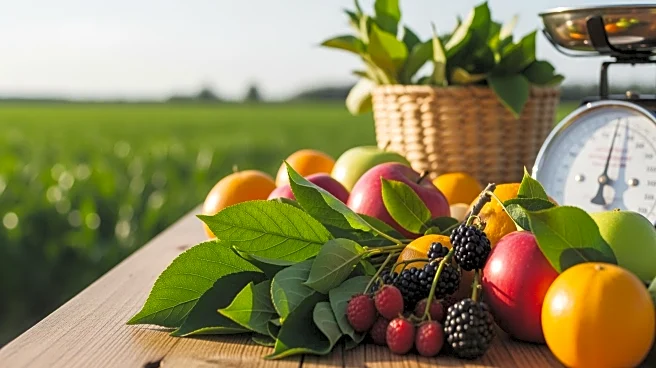What's Happening?
The AgriNet Guam USA 2025 expo, organized by Felix C. Benavente, took place at the Agana Shopping Center, focusing on agriculture and agribusiness as potential pillars of Guam's economy. The event brought together local farmers, agricultural organizations,
and food businesses to discuss new techniques and market opportunities. Presentations covered topics such as agribusiness economics, agritourism, and financing. Executive chef Casey Castro introduced the Guam Kitchen Lab, aimed at reducing food waste by producing shelf-stable items from local produce. The expo also addressed Guam's reliance on imports and the potential for local production and export, particularly in the livestock industry.
Why It's Important?
The AgriNet Guam USA 2025 expo underscores the importance of diversifying Guam's economy through agriculture and agribusiness. By reducing reliance on imports and promoting local production, Guam can enhance food security and create economic opportunities for local farmers. Initiatives like the Guam Kitchen Lab can help minimize food waste and support sustainable practices. Developing the livestock industry and gaining USDA approval for meat processing could open new markets locally and internationally. These efforts contribute to a more resilient and self-sufficient economy, benefiting both producers and consumers on the island.
What's Next?
Future steps include gaining USDA approval for Guam's livestock products, which would enable local meat processing and sales. The agricultural community plans to strengthen connections with neighboring islands to expand the food system and reduce imports. Upcoming events may focus on traditional farming methods and networking with other Micronesian islands to enhance local food production and export opportunities. Continued collaboration with educational institutions and government agencies will be crucial in advancing these initiatives and achieving long-term sustainability goals.
Beyond the Headlines
The expo highlights the cultural significance of traditional farming practices and the potential for regional cooperation in Micronesia. By leveraging local resources and knowledge, Guam can preserve its agricultural heritage while adapting to modern economic challenges. The emphasis on sustainable practices and reducing chemical pesticide use reflects a growing awareness of environmental impacts. These efforts align with global trends towards sustainability and could position Guam as a leader in regional agribusiness innovation.















